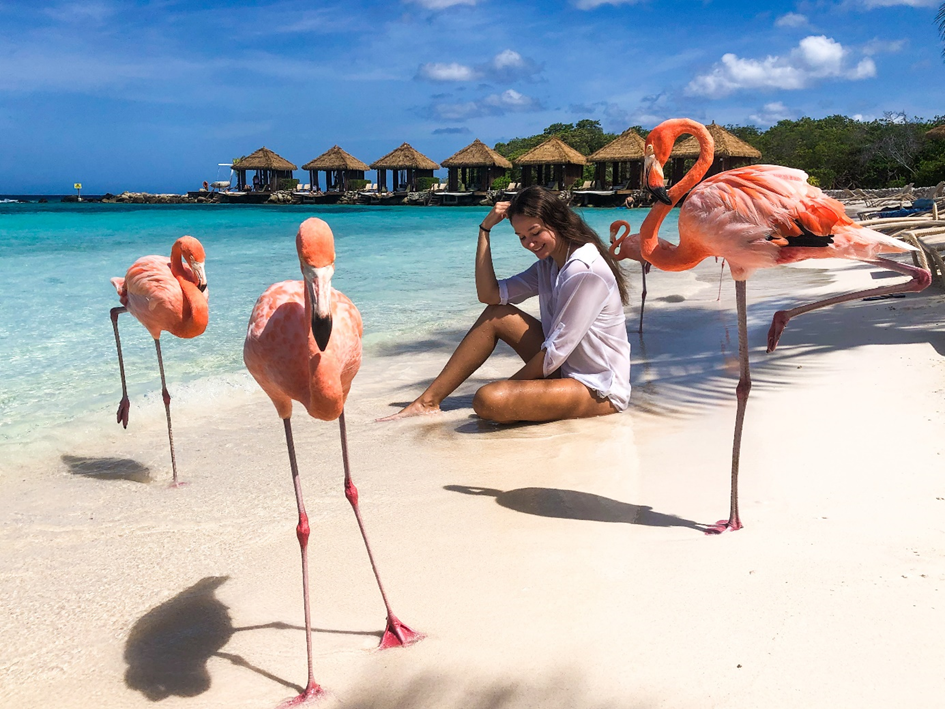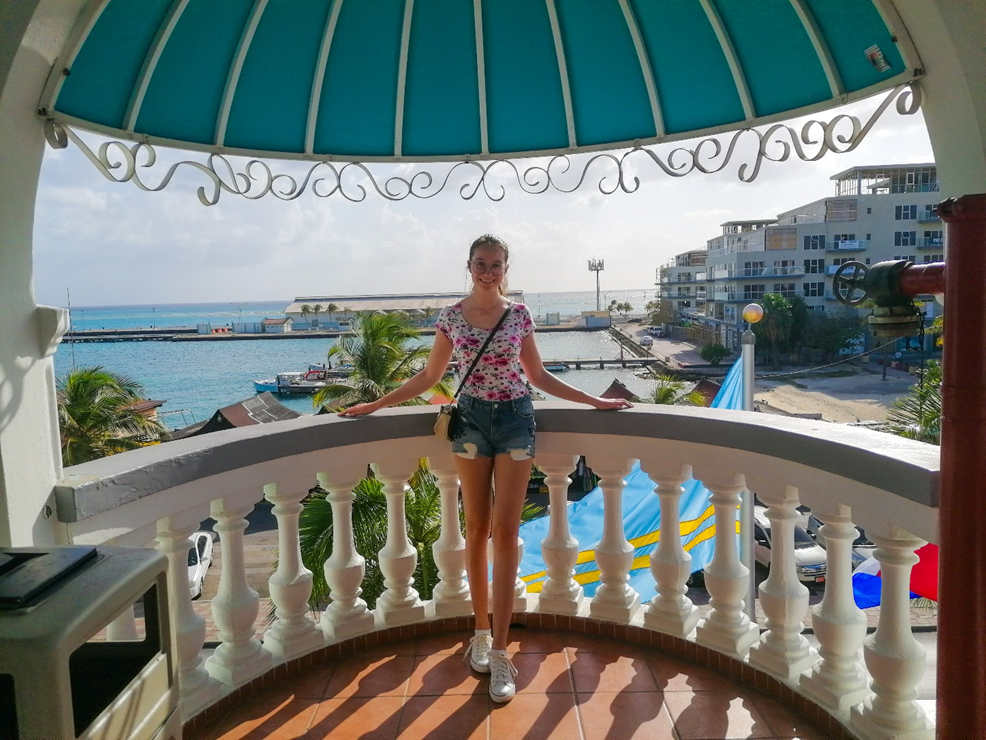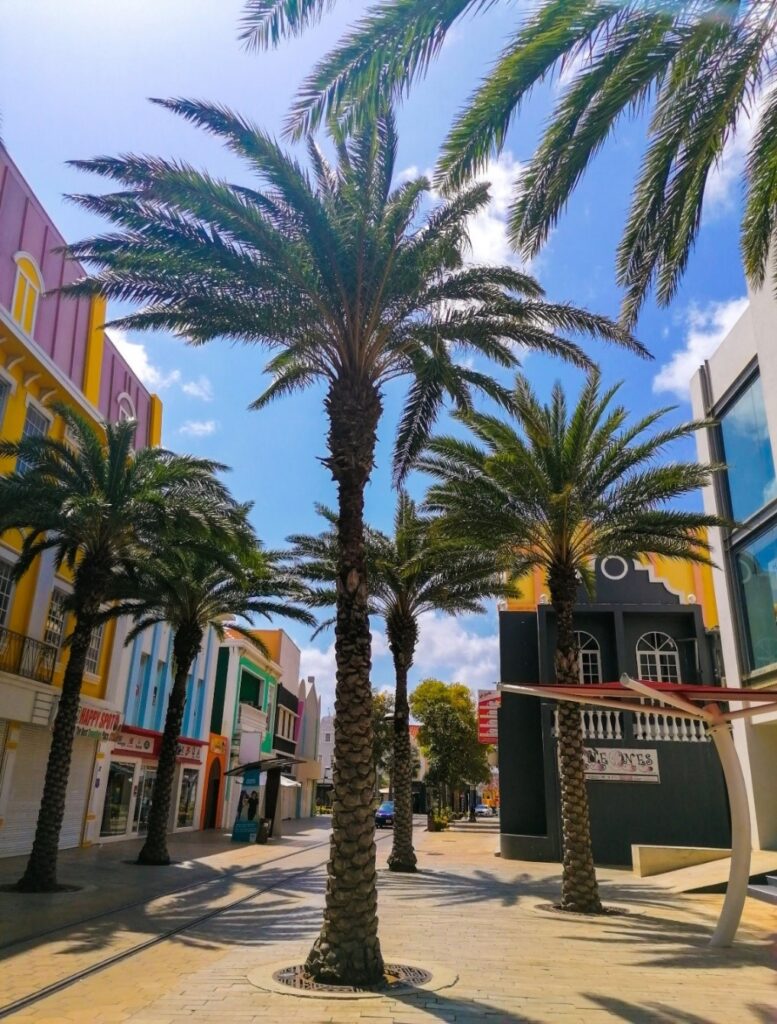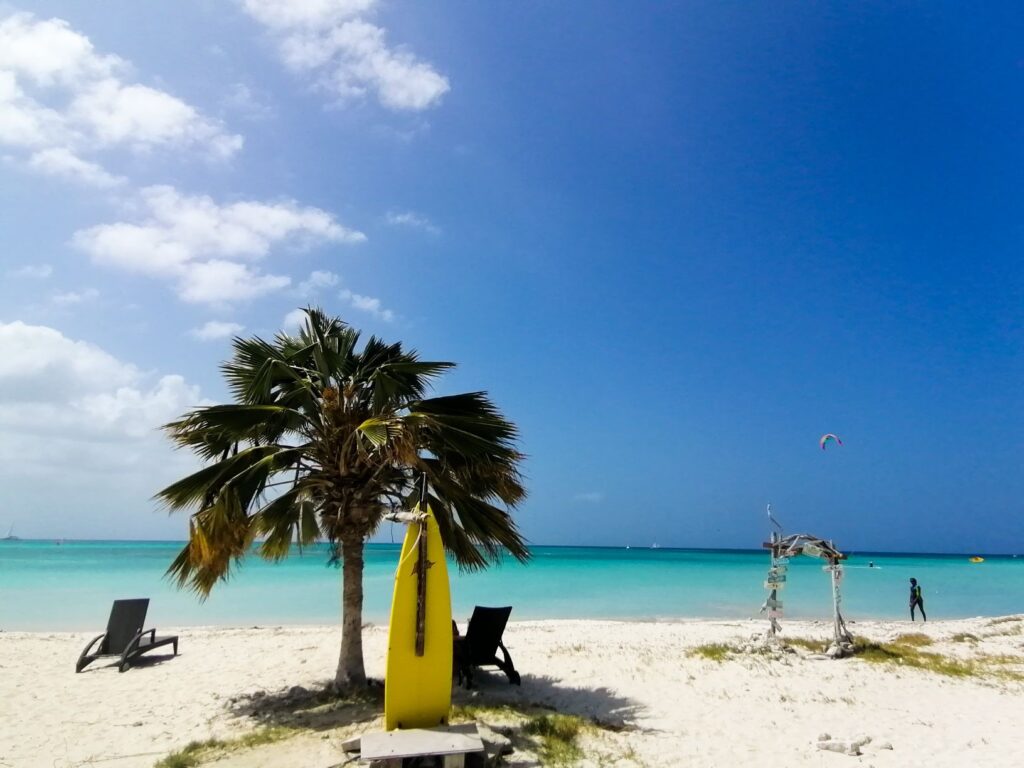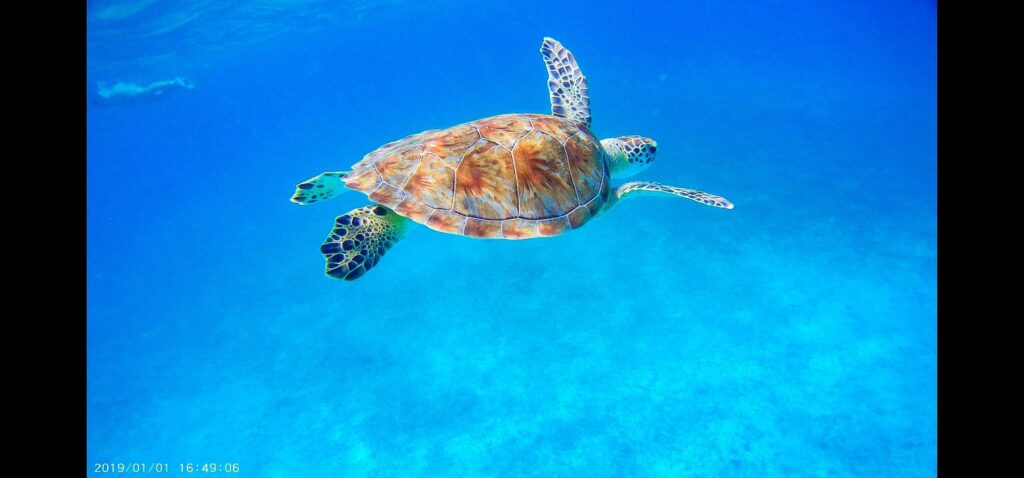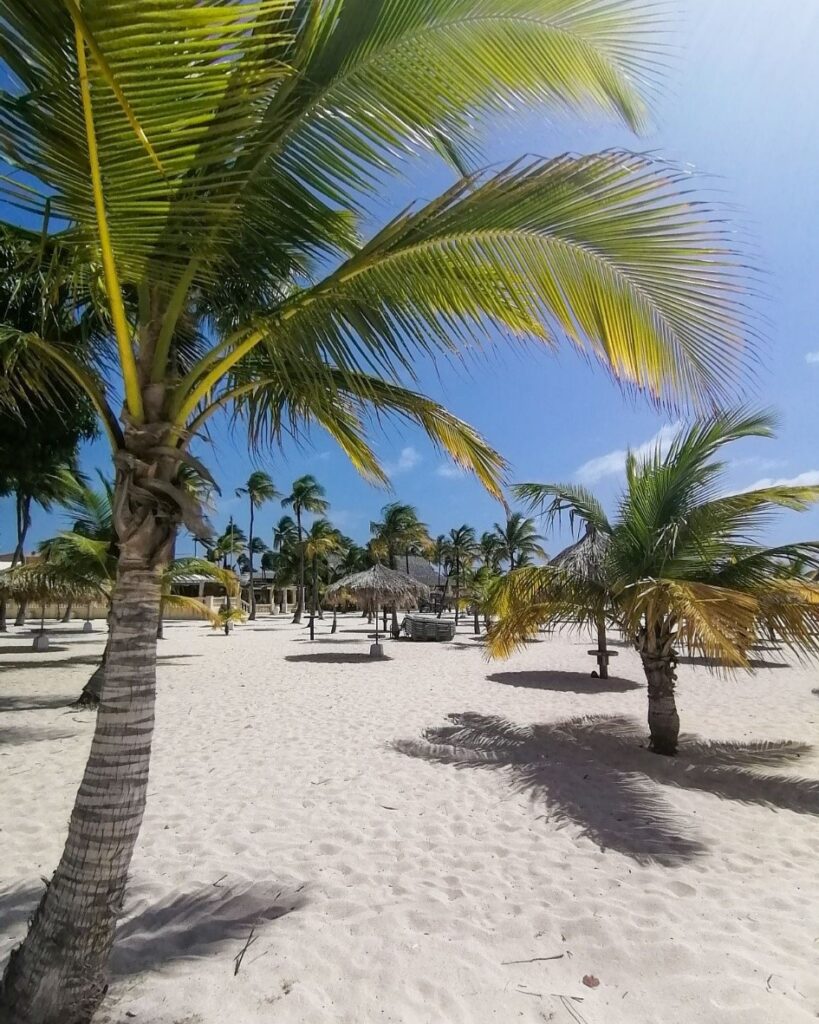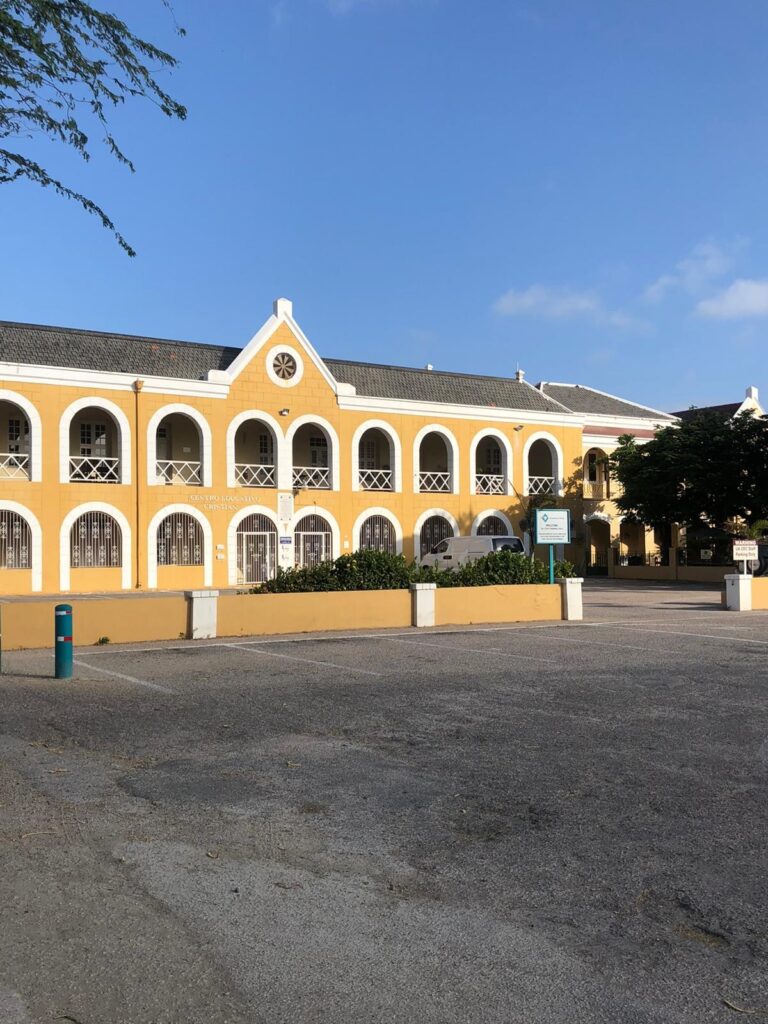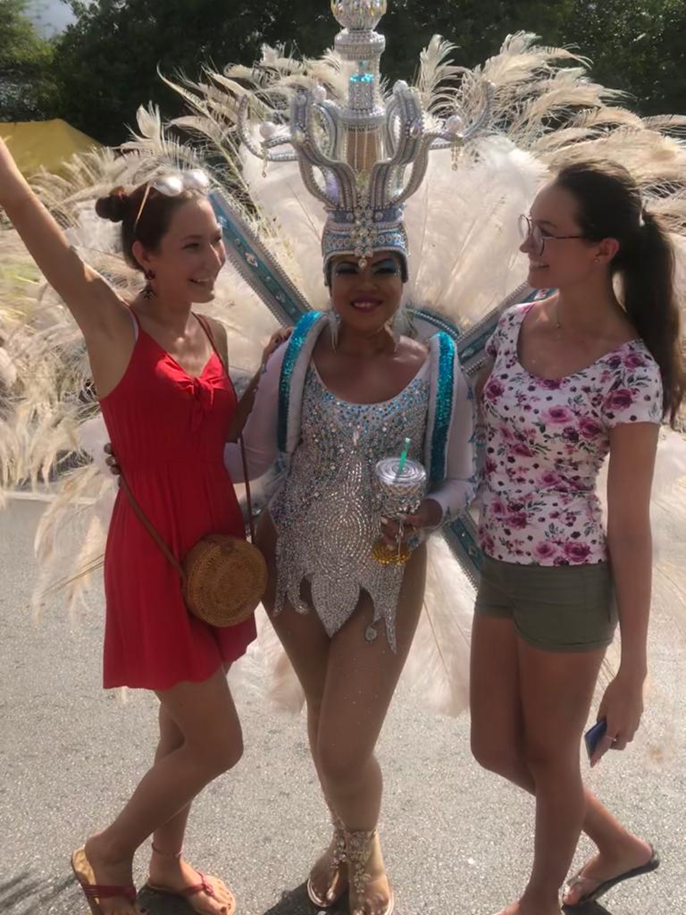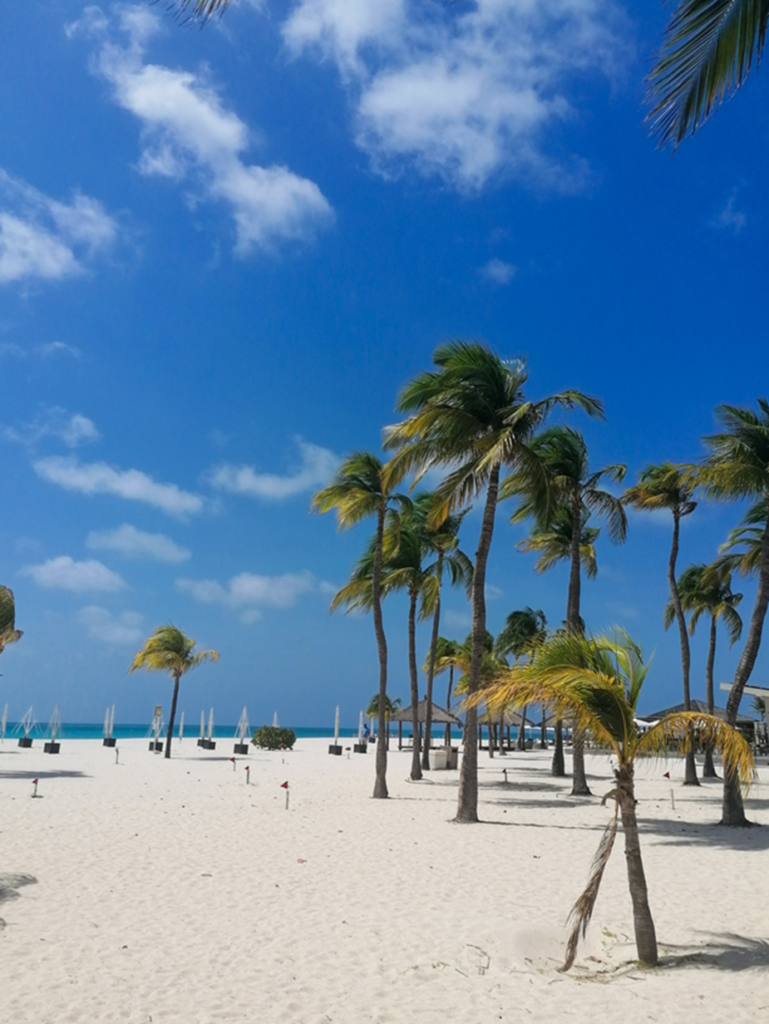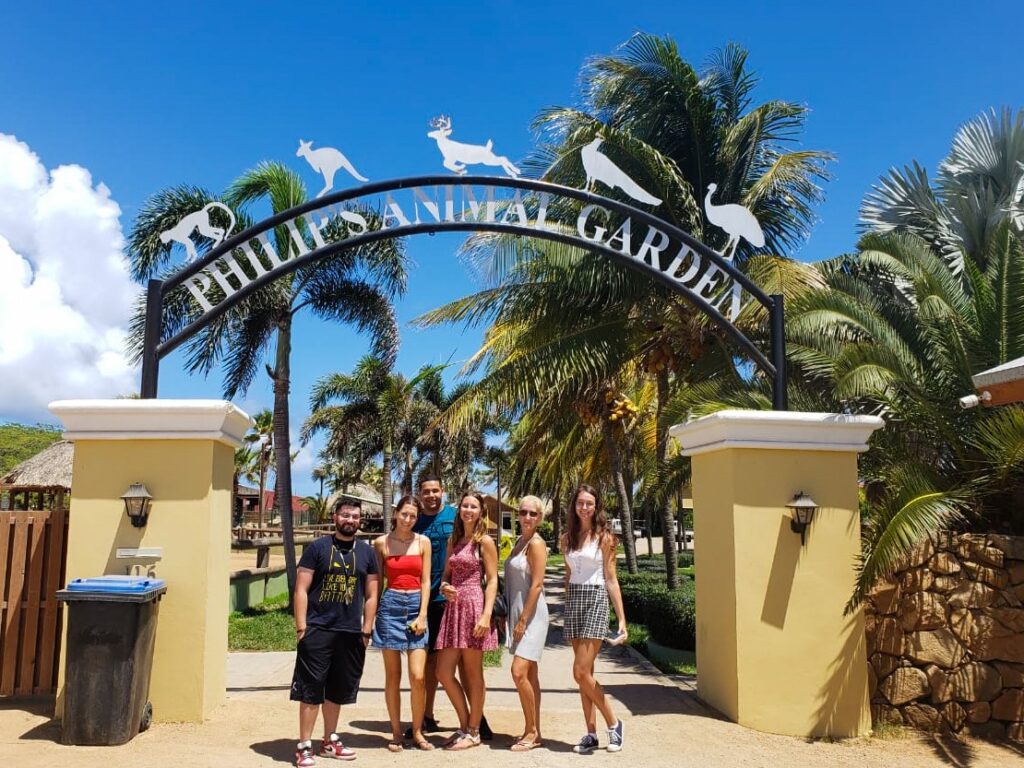Hello, my name is Carolin Oberleiter and I will soon be back at FHWien der WKW studying Corporate Communications in the fifth semester. I was lucky enough to spend the summer semester 2020 on Aruba, a small island in the Caribbean. Now that I am back, I will gladly share my experiences with you in the following article.
People get used to many things, but never to saying goodbye
During the application process to FHWien der WKW, it was made clear to full-time students that we would have to complete a mandatory semester abroad in the fourth semester. “By then, I’ll be older”, ” I’ll be more mature by then”, I thought to myself. “It’s only a couple of months, I’ll be fine. And I’ll see my family at Easter”. But the fourth semester came faster than I thought, I didn’t feel any more mature and what was actually going according to plan in 2020?
I had just settled into Vienna so nicely, visited my family only two or three times a year in South Tyrol and I have never gotten used to the goodbyes.
That’s why I never thought I’d fly to a Caribbean island at the age of 20 and live there for half a year. Before I moved to Vienna, a village with about 150 inhabitants was my little world and I didn’t even own a passport. Today, I am glad that the semester abroad was mandatory for our full-time study program. I don’t know if I ever would have done one otherwise.
If you are studying in Aruba, you will be financially supported by Erasmus+
One thing you should know about the Caribbean island of Aruba is that it is geologically part of South America, but it is also part of the Kingdom of the Netherlands. For this reason, every student who completes his or her semester abroad is also entitled to receive an Erasmus grant. This made it possible for me to study there in the first place because flights to Aruba are very expensive and basic living costs are high as well. Fruits, vegetables, and other goods must be imported which explains the high prices in local supermarkets. For example, 4 tomatoes can cost 4 euros. For those affected, it is perhaps also worth mentioning that a gluten-free and/or lactose-free diet on the island is very difficult.
Paradise on Earth: Aruba is truly “One happy island”
Aruba is known for its beautiful white-sand beaches and wonderful sunsets, but the people who live there make the island really special. They are warm-hearted, helpful, open, adventurous, and speak many languages fluently (Papiamento, Spanish, English, Dutch…). Never have I felt so warmly welcomed and safe as on this island.
The University of Aruba is still reminiscent of the monastery that it once was. The centerpiece is a small chapel, which today serves as an auditorium. There is a small cafeteria, a library, as well as some lecture halls and smaller classrooms. In my experience, it is quite cool in most classrooms, because of the air conditioning. Mango trees, palm trees, and other exotic plants adorn the entrance area as well as the courtyards and open corridors. The grading scale goes from 1 to 10. In addition to the examinations at the end of the semester, a lot of group and homework must be done. These help to put what has been learned into practice. In my courses, this work consisted of app design, an expansion plan, the improvement of an existing website, and the creation and presentation of a strategic marketing plan.
During orientation days, we were not only able to establish contacts with internationals but also got to know local students. Locals who have become not only our best friends but also family. Together we enjoyed afternoons on beautiful beaches and discovered hidden “natural pools”, swam with turtles, went go-karting, played softball, and even baked a Sacher cake. These people welcomed us like family members, helped us with grocery shopping, took care of us while snorkelling and showed us places that no tourist would ever find. You can really rely on the inhabitants of this wonderful island.
Hidden costs
Unfortunately, one thing you cannot rely on in Aruba is public transport. The island and its inhabitants follow their rhythm, affectionately described as “Aruban time.” This means: the bus arrives when it arrives; maybe it doesn’t arrive at all. For this reason, a car is indispensable, also for students. Especially those who stay at Pearl D’or or in Blue Village and must drive to university every day. The alternative is to rent an apartment near the university and walk there. This is what my friend and I decided to do.
The impact of the pandemic
After two carefree months, the first consequences of the pandemic also appeared on Aruba. First cases arose, tourists had to leave the island, restaurants, shops, hotels, and the university were closed. Besides a few exceptions, all internationals were suddenly forced to fly home. At FHWien der WKW, every student is seen and treated as an individual, and so we were left to decide for ourselves whether we wanted to fly home or not. Since the Aruba government had the situation under control and we were supported by so many people, we decided to stay. In retrospect, this decision was the right one. Even though it was difficult to say goodbye, I am incredibly happy and proud to have taken advantage of this opportunity, because every single day on Aruba was simply a gift.
I sincerely hope that the partnership between FHWien der WKW and the University of Aruba is maintained so that many more students can have this unique experience and grow as a person.
